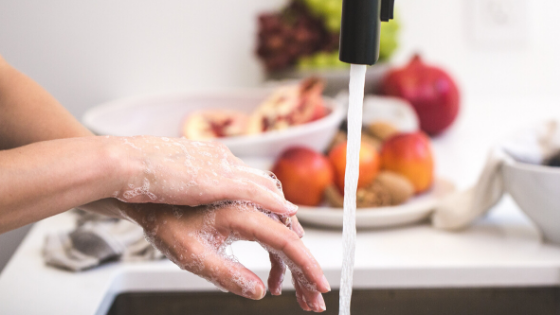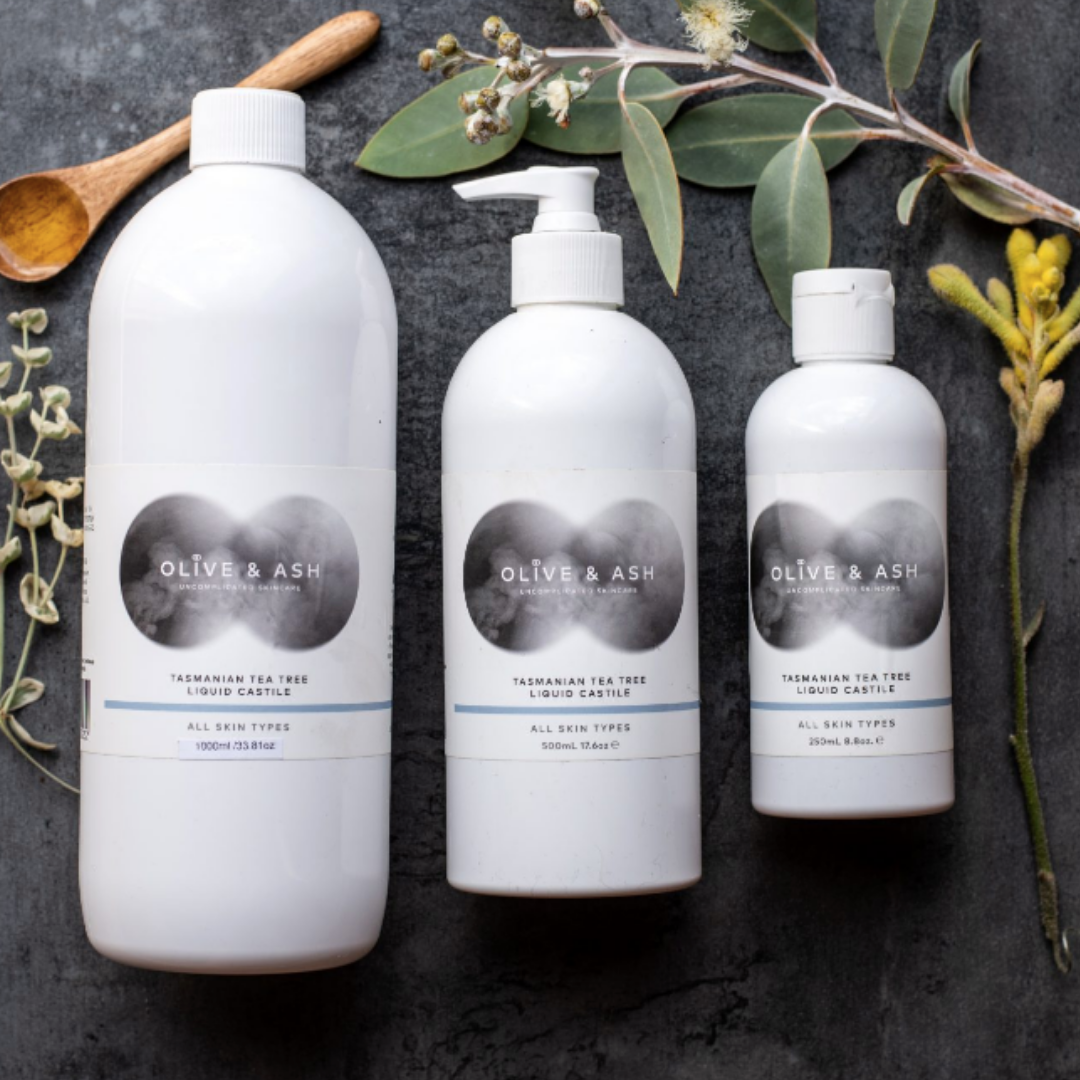Hand towel or air dryer? Soap or sanitiser?
These are simple but important questions we need to ask ourselves right now.
Do you remember growing up and you were told to wash your hands before you sat down for a meal?
Do you still do this?
Or has basic hygiene gone under the radar and we’ve forgotten the importance of these simple actions?
While I was writing this article, I was listening to the Dr Karl Podcast (always good for a laugh!) and he said some interesting things.
It doesn’t matter if you are a naturopath, a GP, specialist, old fashioned thinker – all of the messages are the same as to how to manage the unknown.
There might not be a whole lot we can do about Covid19 but what we can do is simple – we can wash our hands and make sure we do a few other basic things to keep ourselves healthy.
Be it to tackle Covid19 or the usual cold and flu outbreaks that winter brings.
My next question for you is this – after you’ve washed your hands do you use a paper towel or an air dryer to dry them?
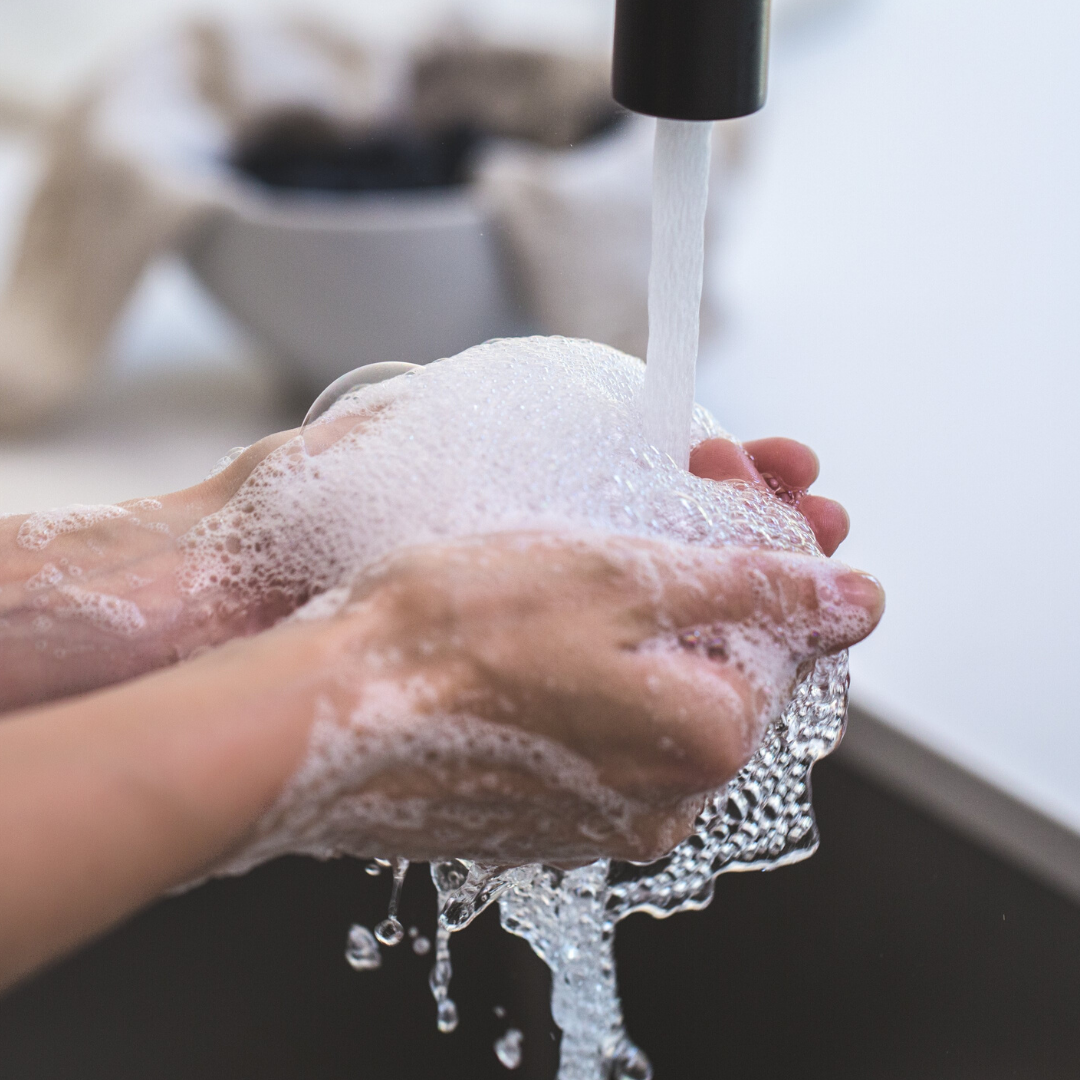
What does washing our hands actually do to the bugs on our skin?
When you wash our hands be it soap, hand wash or sanitiser the actions are a little different.
Soap and other soap based washes that are fat based break down the outer casing of the virus and it breaks down and going down the sink with the soapy liquid. But when we wash our hands not all of the virus is broken down and is still on the hands.
This means if you still have water left on your skin and follow with an air dryer to dry your hands, the germs will remain on your skin.
However, if you use a paper towel, the paper will remove the remaining germs from your skin. Even if just during this highly contagious Covid19 period, make sure you use a paper towel and keep it separate and add it to your compost. It will balance the potassium and nitrogen levels of the compost.
Not surprisingly, everyone is going crazy for sanitisers at the moment. While it’s a convenient option, try to only use it when you can’t get your hands on a bar of soap. Hand sanitiser with additives like triclosan isn’t a great long term option for your skin health and can harm the environment.
Stick with good old fashioned soap (real soap not soap free soap) when you can – it’s hands down (pardon the pun!) the best thing to wash your hands with.
Personally, I have never liked hand dryers! I run out of patience quickly standing around waiting for my hands to dry. Although, Dyson changed my world when they introduced the super duper 10 second dryer – call me odd, but I really enjoy drying my hands with it!
That said, it looks like I should have stuck with my love of the paper towel – in the paper vs air hygienic hand drying debate, scientists are leaning towards paper.
As for the reusable hand towels? The quickly become havens for bacteria and should be limited or changed on high rotation at home.
Healthy Hygiene Tips To Keep You In Tip Top Shape This Winter
It’s never too late to start to live clean and these tips aren’t anything new, but it’s important that we’re reminded of them in times like these.
Hand Hygiene
- Wash your hands with good old fashioned soap or soap hand wash like our liquid Castile (if you don’t like hard bars) and dry your hands where possible with paper towel or if hand towel, ensure it is replaced very regularly.
- Use sanitiser when you have no other options.
- Try not to touch your face, eyes, or mouth.
- Try not to handshake or greet with a hug if possible if only for the first wave of virus or flu.
Sleep
I think we forget how important sleep hygiene is for us, sleep is a crucial time for the body to heal and repair itself.
Depending on your age, it’s natural that the amount of sleep you need will vary. When we’re younger we might need anywhere from 8-12 hours of sleep but as we get older we should aim for 8 hours a night, or on an off night, 7 hours.
The earlier we go to sleep the better quality our sleep is. Remember, every hour before midnight is worth 2 after midnight!
Tell your family not to use their phone late into the night – and lead by example by switching your own phone off early.
We need the dark to encourage melatonin release which is stimulated through our eyes and required for us to sleep.
Grab a cup of relaxing hot drink – a herbal tea or cup of cocoa – and sit on the verandah or at a window and enjoy the moonlight.
Do not skip the stage where you’re feeling naturally drowsy by powering through and doing all those last-minute things you ‘have’ to get done before bed.
If you go to bed when you have the drowsy feeling, sleep will come easier and faster but if you skip that phase you’ll struggle to fall asleep when you do get into bed.
Exercise
People don’t rabbit on about the benefits of exercise for no good reason!
There are plenty of benefits you’ll reap by incorporating regular exercise into your life – be it to increase your bone density, keep your heart functioning optimally, tone your muscles and generally give you a happier disposition in life.
Exercise also helps your lungs to stay strong and encourages iron and oxygen to move around the body which keeps our cells healthier.
You don’t have to run marathons but you have to do something! Whether you walk, bike ride or run – these activities improve cardiovascular health and keep lungs strong. Mix the cardio with some weights or heavier lifting every few days to improve your muscle tone – we need strong muscles to pump iron around our body.
Even if you pick up a few of your hoarded tins of tomatoes and use them as light weights, grab a broomstick and put it behind your arms and do lunges or walk and get some vitamin D – which is an important hormone to keep us healthy.
Doing something is better than nothing. My last article What’s Your 20 In 20? will give you some other suggestions on how to get into the habit of incorporating regular exercise into your routine.
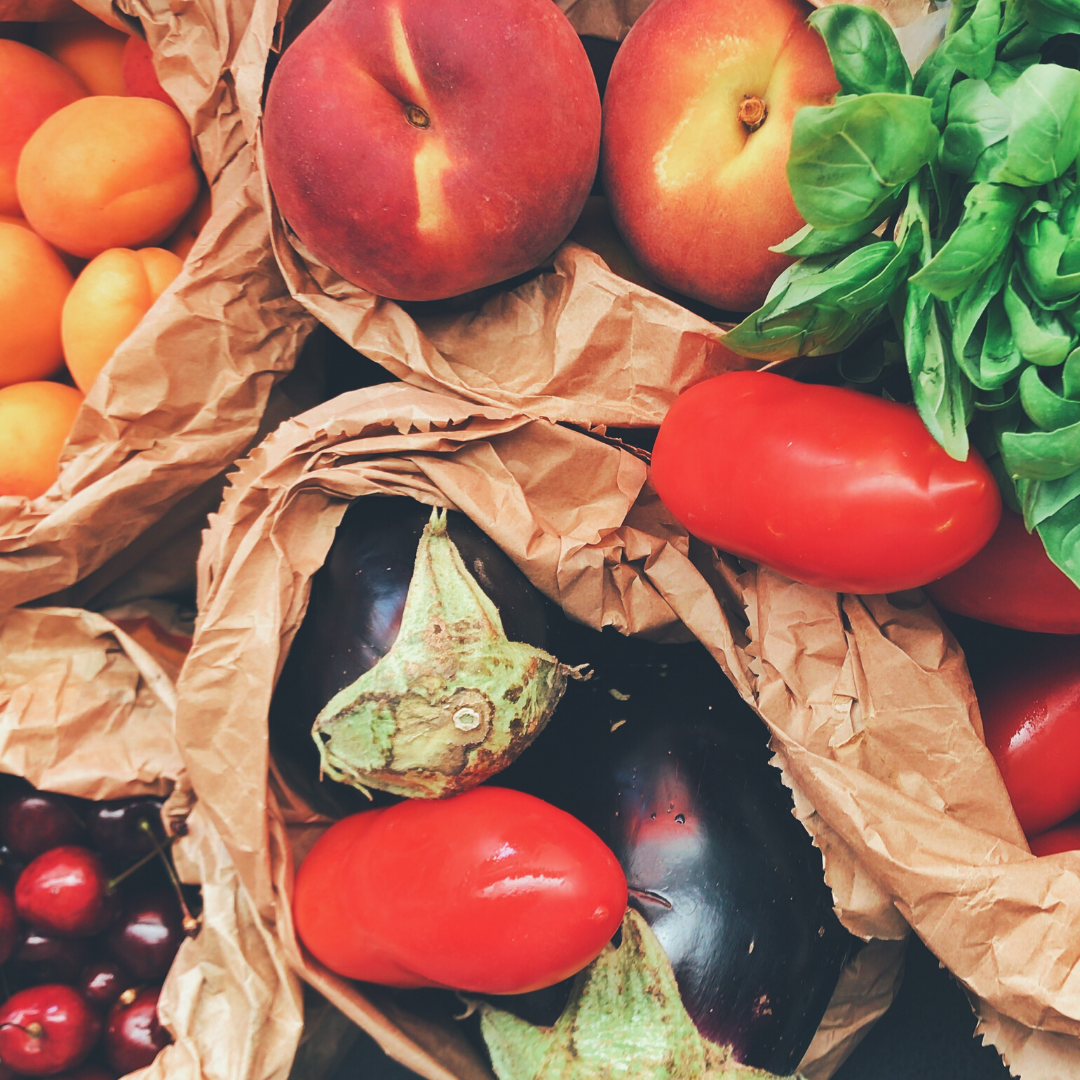
Eat Well
Eating quality, whole, simple foods and lots of veggies is the best thing you can do to nourish your body and keep your immune system firing. This is a perfect time for increasing your fruit veggie intake – who doesn’t like fresh summer and autumn produce, yum!
Green leafy veggies: Include as many leafy greens as possible and your liver will love you for it. If not everyone in your family likes having veggies on their plate, make a soup or veggie pasta sauce by blitzing them in the blender – ta, da! – no more veggies 🙂
Mushrooms:
IF you have access to mushrooms like Shiitake, Reiche and other Asian mushrooms they are wonderful antivirals and can be incorporated into our diet in the form of soup or sauces.
Limit processed foods:
They are ok for a backup but the more processed foods we eat the more burden on our organs like the liver and kidneys.
Keep your fats as good fats:
The occasional fish and chips or schnitzel are ok but good fats are so much easier to consume at this time of year. Salads with drizzles of olive oil and avocado or fetta cheese are good lean fats.
Proteins, grains, and legumes:
Keep your plate well balanced with proteins, grains, and legumes I’m personally not into paleo) choosing lean meats or tofu/tempeh, quinoa, and chia. Anyone else itching to get into cricket meal protein?!
Lots of fresh fluids:
Filtered water (skip the chemicals added to tap water) green or herbal teas for immune and relaxation and comfort.
The occasional green smoothie is fine but we are better humans if we chew our food. Our digestion doesn’t work optimally if we do not chew – or chew when you drink.
Chai is a great choice right now. Chai is a perfect Indian beverage when hygiene is questionable and the spices in chai help cool us down and regulate body temperature while keeping the gut and bowel free of parasites and bugs.
Chai made from a base of Rooibos is a wonderful black tea substitute and has all of its own nutritional benefits to top it off.
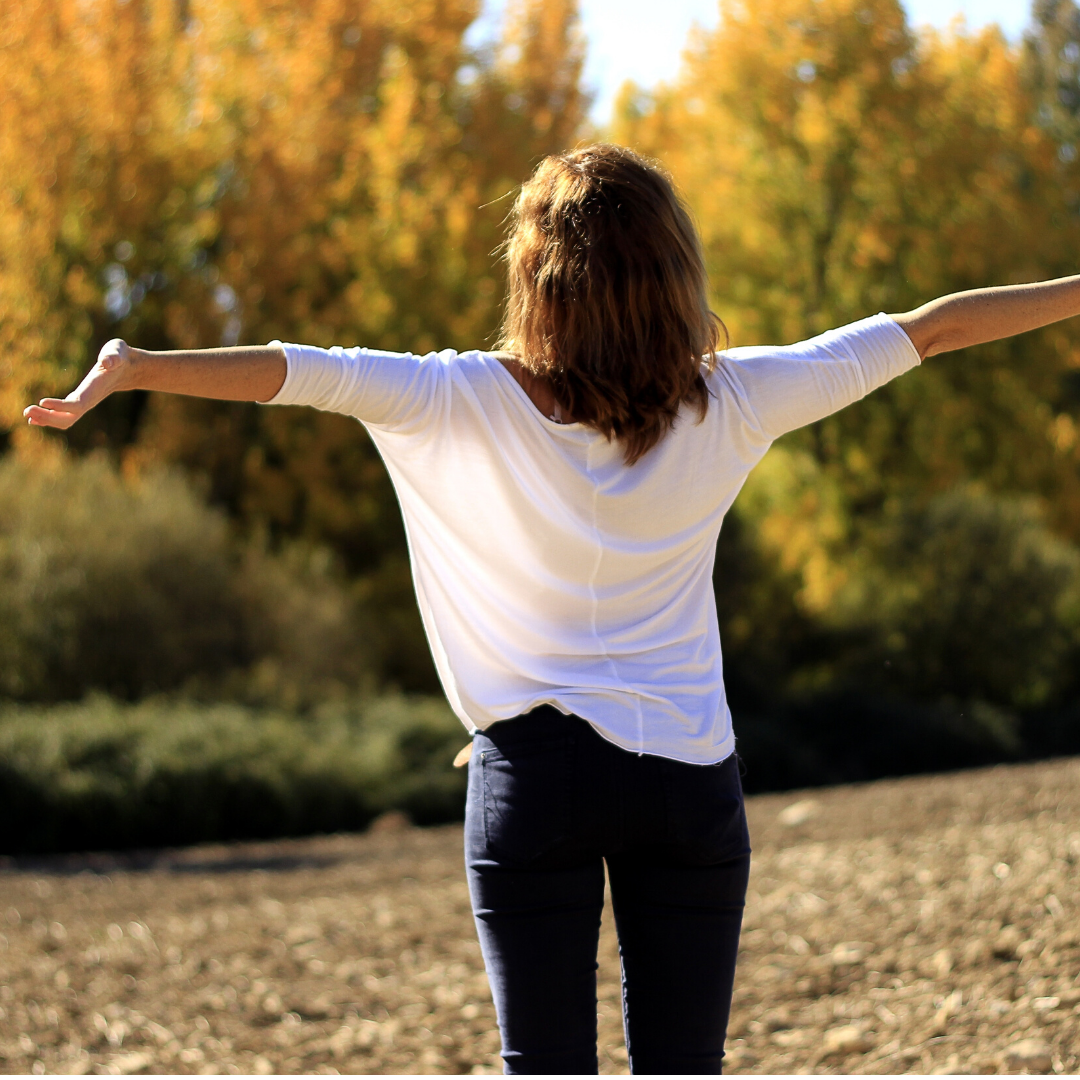
Feel Joy
The simplest way to inject more joy into your day? On waking think happy thoughts!
Don’t moan that you have to get out of bed into the cold air, keep your thoughts positive and happy.
The night before, write a few things you’re looking forward to doing the following day on a notepad and keep it next to your bed.
Instead of checking your phone first thing, read over your little list to help boost the happiness in those first waking thoughts.
Community
It is important to be involved with others. Be it a social group, exercise group, your group of friends – just knowing that someone is watching out for you, that you’ve got someone to laugh or cry with or to help carry the other end of that something(!) is important for your mental health.
Get involved with your community in some way – volunteer, buy a stranger a coffee, donate, do a random act of kindness, join a local dance or yoga class, or take the kids to play a group sport.
Being around people – even if it’s sitting on the side watching and having a giggle at others antics – is all good for the soul. If there is anyone you know who is unwell and wish to not visit right now just give them a call and let them know you care.
Immune health
Maintaining a healthy lifestyle will limit our susceptibility to colds, flu and viruses and it is important at times like these not to panic.
Panic puts a burden on your body and depletes your immune system meaning it will struggle to keep viruses etc at bay.
If you usually take natural medicines, at this time, I’d recommend not taking lots of immune-stimulating herbs – we need to focus on immune-modulating herbs.
All of the above health suggestions help modulate the immune system and keep our body strong enough to fight off any unwanted microbes.
Autumn Special and DIY Hand Sanitiser
We are running an Autumn special! With all soap liquid castile orders you’ll will receive a small natural hand sanitiser but if you wish to make your own, here’s a recipe:
You may not be able to buy a quality hand sanitiser but it’s easy to whip up your own DIY version –
What you need to make the DIY hand sanitiser
- 5-10 drops lavender essential oil
- 30 drops tea tree essential oil
- 120 mls high quality vodka (required over 60% v/v) or rubbing alcohol
- 30 mL pure aloe vera gel
- ¼ teaspoon Vitamin E oil – this will help keep your hands soft
How to make the DIY hand sanitiser
- Combine tea tree and lavender essential oils with Vitamin E oil to a small glass bowl and mix.
- Add the alcohol (over 60% v/v) and mix again.
- Now add the aloe vera gel and mix well.
- Pour the mixture into a bottle you can squirt it from (this is a gel-like mixture, not a spray) and give it a gentle shake before each use. This DIY hand sanitiser will last you a few months.
*If you would like to one of the first to hear when our Moisturising hand sanitiser will be available for you, if you are not already part of our VIP club go and signup now to be the first to hear.
Signup Here
Wishing you good health during these uncertain times! If there is anything we can help you with, please reach out to us – we’re here to help.
Deb x
